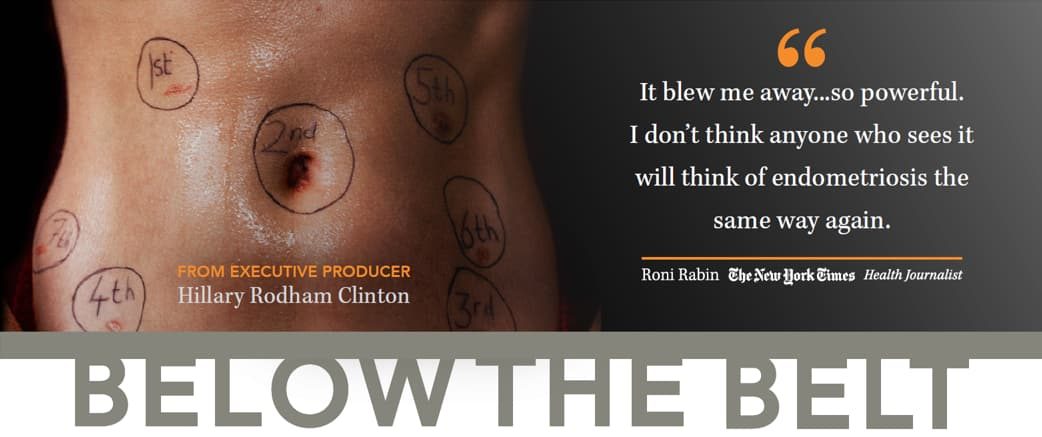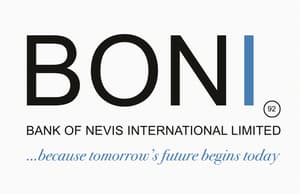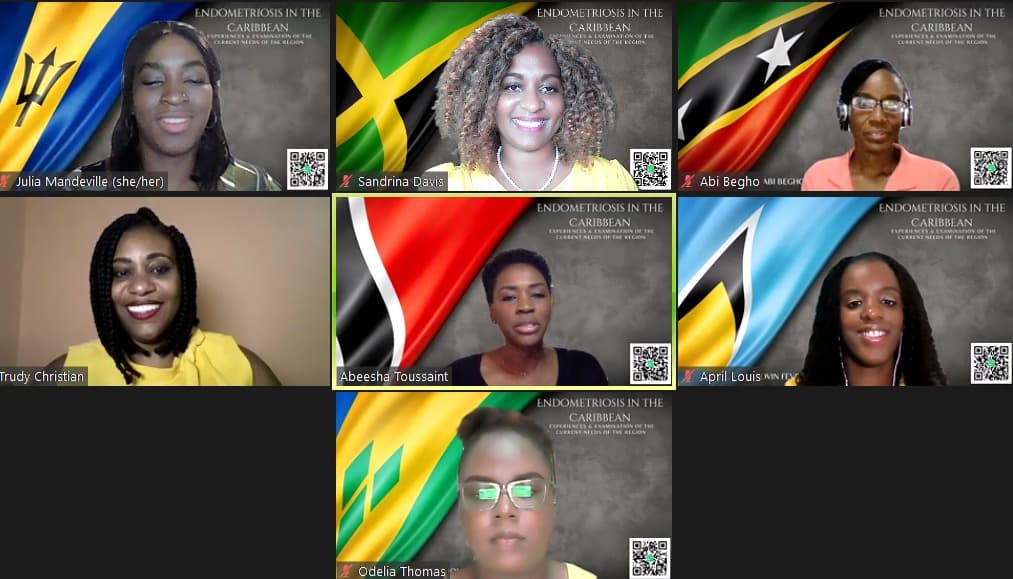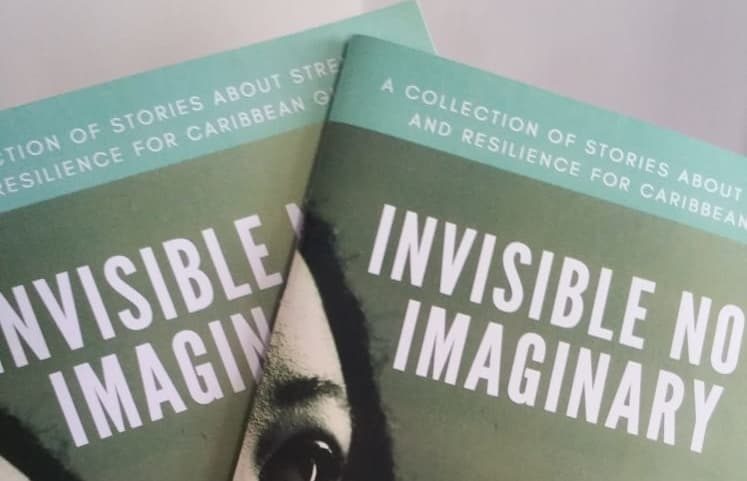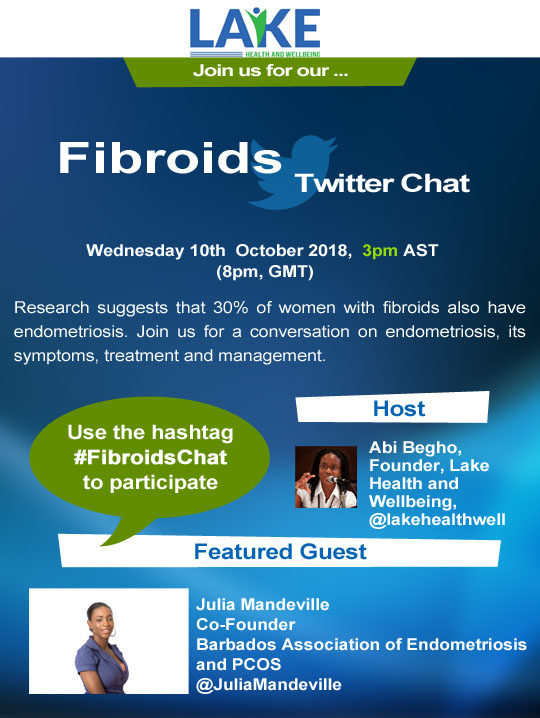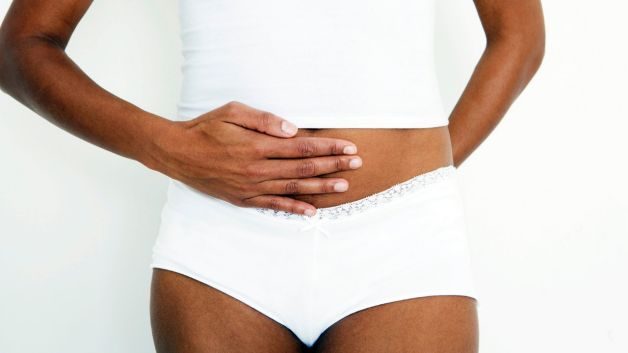Many years ago before I even knew what endometriosis or fibroids were I knew the sudden stabbing pains I felt in my side weren’t right. My periods were often heavy and ‘clotty’ but I was too embarrassed to discuss it with anyone and so I suffered in silence.
Some years later I was living in England and when the pain recurred I went to see my GP who disappointed and shocked me with his response when I described my symptoms to him. My GP asked me whether I was planning to have children. I was 22 then and not ready. He replied, ‘well there are a lot of people who don’t have children’. I left the clinic stunned. I wasn’t very assertive then so didn’t answer him back.
Fortunately, I did have my son a couple of years later and all was well. I remember though that the pains would come and go but I just bore it. During a trip to Ghana, I woke up to stabbing pains in my right side again which had me doubled up in pain. When I got back home I saw my GP who referred me to a Consultant who happened to be the one to travel this journey with me. She sent me to carry out some tests which revealed I had endometriosis and fibroids. I was given tablets to help and the pain subsided. By then my son was 5/6 years old. At one of my check-ups my Consultant asked me whether I wanted any more children and advised me to do it ‘sooner rather than later’.

A year later, on Valentine’s Day, I went for another check-up, my Consultant was about to prescribe some more medication for me when I told her I might be pregnant. We did a test which was positive!
Whilst pregnant and after my daughter’s birth there were no symptoms and my doctor told me many women find the fibroids and endometriosis disappear during pregnancy.
Eight years ago I felt the pains and discomfort again. The same Consultant I had seen over 12 years earlier was still working at the hospital which I considered a blessing as she knew my history. She sent me off for a scan. I knew there was a problem when the lady carrying out the scan stopped joking and suddenly had a serious look on her face. I asked whether everything was alright, she told me my Consultant would be in touch.
I received an appointment. It was a different Consultant this time who asked me to have some blood tests done. I asked him whether I should have them done at my local hospital, he said no and that I had to have the blood tests done straight away!! As I walked to the department to have the tests done I opened the letter and saw the letter C scribbled amongst other medical jargon. I knew straight away I was being sent to test for some form of cancer. And I was on my own!
I got home and looked the medical term up on the internet which confirmed my fears, it was a test for cancer!
Another appointment came and my husband accompanied me. Thankfully it was my regular Consultant. She gave me the results and explained the scan showed a very large cyst on my right ovary which they thought could have been cancerous. The blood tests had however come back clear.

Ovarian Cyst
My Consultant went on to say she felt I needed to have a hysterectomy as soon as possible because I had a ‘diseased womb’. My husband and I were shocked and we tried to ask for other options. She told us that this time I didn’t have a choice and that on top of my problems with fibroids, endometriosis and the cyst on my ovary I also had an ‘enlarged womb’! Gosh, the list just gets bigger! She then booked an appointment whilst we were in her office for my surgery in 2 weeks’ time!
I had the surgery by this Consultant in September 2006 and thank God all was well. No cancer found. I however had to undergo a ‘total hysterectomy’ which meant losing my ovaries, womb, tubes and cervix. I guess the risk of cancer was great and she wanted to eliminate any possibility.
I cried for a while to think I had lost my ‘womanly bits’ but my husband sternly told me to be grateful to be well and alive. That shook me up and I started to take a positive approach. I had two healthy children, one of whom I didn’t think I would be able to have. I used to call her my ‘little miracle’.
After my surgery I had to go on HRT which I didn’t want to because it made me ‘feel old’. I soon went on it though when I had a sudden surge of heat through my body and quickly stuck my head in the freezer! My family watched me do this in amazement, confusion and amusement!
I have been on HRT patches for 8 years now and feel fine. I have put on a lot of weight but I’m not sure whether that has anything to do with the HRT or the lovely cakes people keep bringing in to work!!
Two months ago a friend mentioned HRT caused her to put on a lot of weight. She came off it and used another form of medication which is made from natural minerals. I have started using it too and have taken myself off the HRT. I have weighed myself and found I have lost a little weight. I need to cut out the cakes and do some walking and I will be back in shape.
I am thankful for my life and have learned it is good to talk, share our fears and experiences; you can learn from someone else and they can learn from you! Let’s be aware and educate ourselves.
Well done on setting up this website!
The Lake Foundation would like to say a big thank you to Naa for sharing her experience with fibroids and endometriosis, we hope that through her experience you have gained some insight into these conditions.
To learn more about fibroids download our booklet below and for more information about endometriosis visit Endometriosis UK’s website

Disclosure: this post contains an affiliate link. Find out more here.







